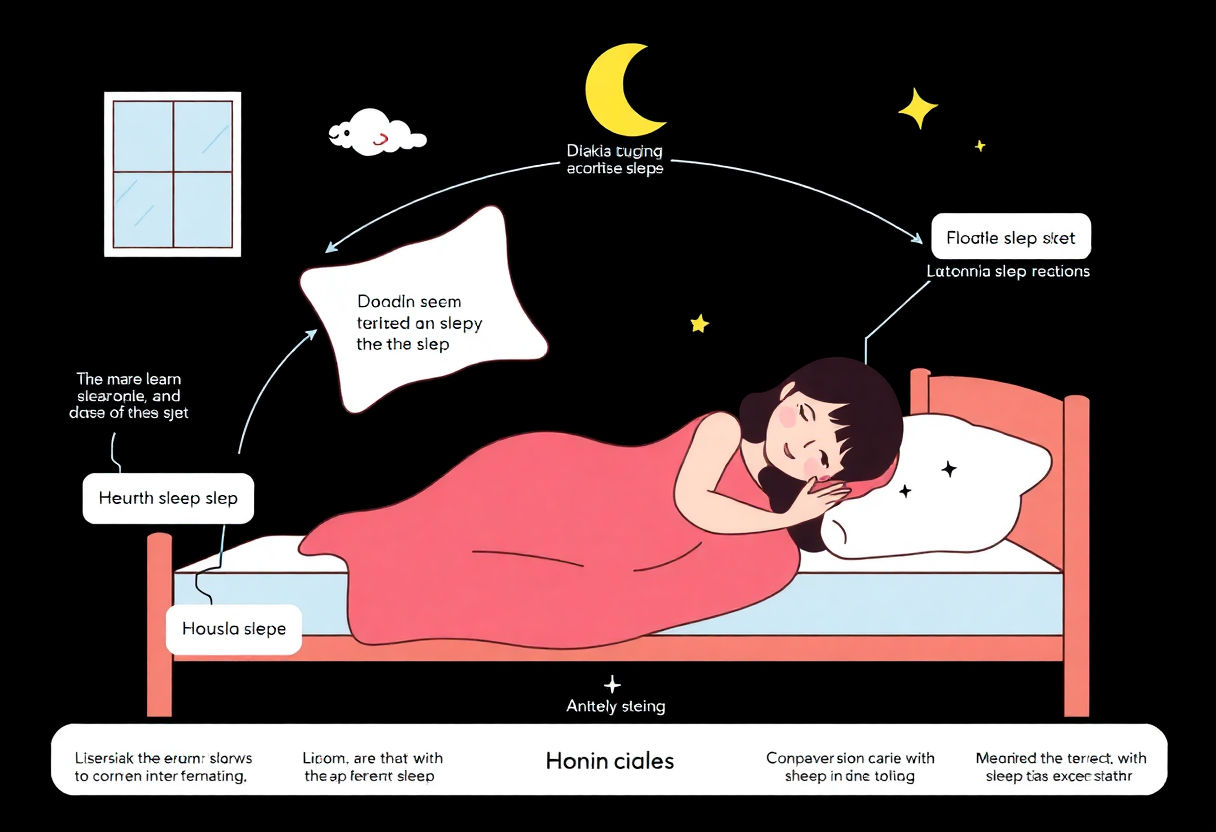In today’s fast-paced world, achieving quality sleep has become increasingly challenging, yet it is vital for maintaining optimal health and well-being. Magnesium complex supplements have emerged as a promising solution to combat sleep difficulties, offering a natural way to enhance relaxation and improve sleep patterns. This article delves into the science behind the sleep cycle, the significant role magnesium plays in sleep, and how various magnesium supplements can be tailored to individual needs. By understanding these elements, readers can make informed decisions to foster better sleep and enjoy the multitude of health benefits magnesium has to offer.
Key Takeaways
- Magnesium complex supplements play a crucial role in improving sleep quality by regulating neurotransmitters that calm the nervous system.
- Different types of magnesium supplements, such as magnesium citrate and magnesium glycinate, offer varied benefits, making it important to choose one suited to individual needs.
- Appropriate dosage and safety considerations are essential to maximize benefits and minimize risks when consuming magnesium supplements.
- Beyond enhancing sleep, magnesium supplements contribute to overall health, including benefits for bone strength, mood regulation, and cardiovascular health.
Understanding the Sleep Cycle
 To truly appreciate the benefits of magnesium complex supplements for sleep, it is essential to first understand the *sleep cycle itself. The sleep cycle is a series of distinct phases that the body naturally progresses through during a typical night of rest. Each cycle consists of four stages: NREM (non-rapid eye movement) stages 1 through 3, and REM (rapid eye movement) sleep, which repeats approximately every 90 minutes.
To truly appreciate the benefits of magnesium complex supplements for sleep, it is essential to first understand the *sleep cycle itself. The sleep cycle is a series of distinct phases that the body naturally progresses through during a typical night of rest. Each cycle consists of four stages: NREM (non-rapid eye movement) stages 1 through 3, and REM (rapid eye movement) sleep, which repeats approximately every 90 minutes.
- Stage 1 is a light sleep phase where the body transitions from wakefulness to sleep.
- Stage 2 is characterized by a deeper relaxation, marked by the slowing of the heart rate and body temperature.
- Stage 3, also known as slow-wave or deep sleep, is crucial for physical restoration and tissue repair.
- Finally, REM sleep is where most dreaming occurs and is vital for cognitive functions like memory consolidation and mood regulation. For more detailed information on REM stages, see REM sleep stages.
Understanding this cycle is vital because it highlights the intricate processes the mind and body undergo to achieve restorative sleep. An imbalance or disruption in these stages can lead to impaired function, mood disturbances, and chronic health issues. Therefore, ensuring each stage is adequately supported, possibly with magnesium complex supplements, could enhance sleep quality and overall well-being.
Moreover, a disruption in any of these stages can profoundly affect our mental and physical health. Consequently, understanding and nurturing the sleep cycle is fundamental when seeking solutions, such as magnesium supplementation, to enhance sleep quality.
The Role of Magnesium in Sleep
 Magnesium is a crucial mineral that plays a significant role in numerous bodily functions, including sleep regulation. Its involvement in the biological processes that promote better sleep quality makes it an essential element in combating sleep disorders. Magnesium assists in activating neurotransmitters that are responsible for calming the nervous system. This calming effect is pivotal for initiating and maintaining restful sleep throughout the night.
Magnesium is a crucial mineral that plays a significant role in numerous bodily functions, including sleep regulation. Its involvement in the biological processes that promote better sleep quality makes it an essential element in combating sleep disorders. Magnesium assists in activating neurotransmitters that are responsible for calming the nervous system. This calming effect is pivotal for initiating and maintaining restful sleep throughout the night.
One of the key ways magnesium contributes to sleep is through its interaction with the GABA (gamma-aminobutyric acid) receptors. GABA is a neurotransmitter that promotes relaxation by inhibiting neuronal activity, thus helping the brain to settle down for sleep. Magnesium’s ability to bind to these receptors enhances its sedative effects, which is why it is often considered a natural sleep aid.
Furthermore, insufficient magnesium levels can lead to a decrease in melatonin production, the hormone directly responsible for regulating sleep cycles. A lack of this vital nutrient can result in sleep difficulties such as insomnia. By ensuring adequate magnesium intake, individuals can support melatonin synthesis, thereby improving sleep patterns and achieving more restorative sleep.
In addition to these biological functions, research also suggests magnesium’s involvement in reducing stress and anxiety, factors often linked with poor sleep quality. By attenuating the release of cortisol, a stress hormone, magnesium can potentially reduce restlessness and improve sleep onset.
For more comprehensive insights into how magnesium impacts sleep, the information available from the Sleep Foundation offers valuable details. As we recognize the importance of magnesium in maintaining healthy sleep cycles, incorporating magnesium-rich supplements can be a practical approach to enhancing sleep quality naturally.
Types of Magnesium Complex Supplements
Magnesium complex supplements come in various forms, each offering unique benefits for sleep enhancement. Magnesium glycinate, for instance, is renowned for its high absorption rate and calming properties, making it particularly effective in aiding sleep without causing the laxative effect typical of other magnesium forms. This form of magnesium combines the mineral with glycine, an amino acid with its own sleep-promoting qualities. More about its benefits can be explored through resources on magnesium glycinate sleep benefits.
Magnesium citrate is another common type, known for its excellent absorbability. It often serves a dual purpose: supporting digestive health and enhancing relaxation. While slightly more potent in its laxative action compared to magnesium glycinate, magnesium citrate remains a popular choice among those seeking a well-rounded supplement.
Magnesium oxide, known for its high elemental content, is less bioavailable, meaning it doesn’t absorb into the body as efficiently as some other forms. However, it is often used to alleviate digestive issues such as heartburn and indigestion, contributing to a more comfortable sleep.
Finally, Magnesium taurate, which combines magnesium with taurine, aids in cardiovascular health and supports neurological function. This form is ideal for individuals who need additional support in these areas while looking to improve their sleep quality.
Individuals should consider their specific health needs and preferences when selecting a magnesium complex supplement, as each type offers distinct advantages that cater to different aspects of health and sleep.
How to Choose the Right Supplement
Selecting the right magnesium complex supplement can significantly influence your sleep quality. Here are key factors to consider for choosing a supplement tailored to your needs:
1. Identify the Form of Magnesium:Magnesium is available in several forms, each with distinct absorption levels and effects. Magnesium citrate and magnesium glycinate are known for better absorption and gentle effects on the digestive system. Those dealing with digestive issues might prefer magnesium glycinate due to its generally mild impact. For a detailed comparison of different magnesium types, consider reviewing this magnesium supplement comparison.
2. Consider Your Health Needs:Determine your specific health requirements. Individuals aiming for both better sleep and higher energy levels could benefit from magnesium malate, known for supporting energy production. Conversely, magnesium taurate is often recommended for its benefits in promoting cardiovascular health alongside enhancing sleep quality.
3. Assess Bioavailability:Bioavailability, or the body’s ability to absorb a compound, is crucial. Opt for formulations with proven high absorption rates to ensure you receive the maximum benefits from the supplement.
4. Review Ingredient Transparency:Choose supplements from reputable brands that provide full ingredient transparency. Understanding the composition allows you to avoid unnecessary additives or allergens.
5. Dosage and Convenience:Ensure the supplement’s dosage aligns with your lifestyle and needs. Some individuals may find capsules more convenient, while others might prefer powders that can be mixed with beverages.
By carefully considering these factors, you can select a magnesium complex supplement that not only enhances sleep but also supports your overall wellbeing.
Dosage and Safety Considerations
 When incorporating magnesium complex supplements into your routine to enhance sleep quality, understanding the appropriate dosage is crucial for both effectiveness and safety. Generally, the recommended dietary allowance (RDA) for magnesium varies based on age and gender. For adult men, the RDA is approximately 400-420 mg per day, while for women, it is 310-320 mg. Pregnant and lactating women may require slightly higher intakes.
When incorporating magnesium complex supplements into your routine to enhance sleep quality, understanding the appropriate dosage is crucial for both effectiveness and safety. Generally, the recommended dietary allowance (RDA) for magnesium varies based on age and gender. For adult men, the RDA is approximately 400-420 mg per day, while for women, it is 310-320 mg. Pregnant and lactating women may require slightly higher intakes.
When selecting a magnesium supplement, it is essential to consider the specific type of magnesium compound, as absorption rates may vary. Magnesium citrate is often noted for its excellent absorption, making it a common choice for sleep and relaxation purposes. On the other hand, magnesium oxide may be less effective in promoting sleep but could be beneficial for other health needs like digestion.
Safety is a critical factor. Begin with a lower dose to assess your body’s response, gradually increasing if needed. This approach helps minimize potential side effects, such as gastrointestinal discomfort, which some may experience when consuming large amounts of magnesium.
Interaction with medications is another important consideration. Magnesium can affect the absorption and efficacy of certain drugs, including antibiotics and osteoporosis medications. Always consult with a healthcare professional before starting any supplementation, particularly if you are taking medications or have underlying health conditions.
In summary, while magnesium complex supplements can be a valuable aid for improving sleep, proper dosage and safety measures are imperative to obtain the desired benefits without adverse effects. Always prioritize professional medical advice tailored to your individual health circumstances.
Potential Benefits Beyond Sleep
 Magnesium complex supplements are renowned not only for enhancing sleep quality but also for offering a multitude of additional health benefits. One of the primary advantages of magnesium is its ability to support cardiovascular health. It plays a crucial role in maintaining normal blood pressure and promoting heart health by helping relax the muscles within blood vessels, thereby preventing hypertension.
Magnesium complex supplements are renowned not only for enhancing sleep quality but also for offering a multitude of additional health benefits. One of the primary advantages of magnesium is its ability to support cardiovascular health. It plays a crucial role in maintaining normal blood pressure and promoting heart health by helping relax the muscles within blood vessels, thereby preventing hypertension.
Furthermore, magnesium is vital for bone health, as it aids in the regulation of calcium and vitamin D, essential for bone mineralization. A deficiency in magnesium can lead to reduced bone density and an increased risk of osteoporosis, particularly among older adults.
Magnesium also contributes significantly to muscle function and physical performance. It supports muscle recovery and helps alleviate muscle cramps and spasms, making it a popular supplement among athletes. Enhanced physical performance is partially attributed to magnesium’s role in energy production and metabolic processes.
Another notable benefit of magnesium complex supplements is their effect on mental health. Magnesium can help reduce symptoms of anxiety and depression by influencing neurotransmitters that regulate mood, such as serotonin. Some studies suggest that magnesium supplementation may enhance overall mental well-being and cognitive function, offering a natural alternative for those seeking mood stability.
Lastly, magnesium plays an integral role in strengthening the immune system. It works synergistically with vitamin D, offering protective effects against infections. Recent research highlights the potential for magnesium to aid in reducing the risk of infections, as discussed in findings related to magnesium immune support. By promoting immune health, magnesium supplementation ensures overall well-being, complementing its sleep-enhancing properties.
Scientific Research and Evidence
 Magnesium’s role in sleep enhancement has been supported by a wealth of scientific research, highlighting its importance in both sleep regulation and quality improvement. Several studies have demonstrated that inadequate magnesium levels can lead to sleep disturbances, while sufficient supplementation can significantly improve sleep metrics.
Magnesium’s role in sleep enhancement has been supported by a wealth of scientific research, highlighting its importance in both sleep regulation and quality improvement. Several studies have demonstrated that inadequate magnesium levels can lead to sleep disturbances, while sufficient supplementation can significantly improve sleep metrics.
One landmark study published in the journal Magnesium Research assessed the effects of magnesium supplementation on insomnia in elderly adults. Participants who received 500 mg of magnesium daily reported improved sleep efficiency and longer sleep duration compared to placebo groups. This underscores magnesium’s potential to combat sleep-related challenges often faced by older populations.
Furthermore, another study revealed that magnesium influences the regulation of neurotransmitters that are instrumental in preparing the body for sleep, such as gamma-aminobutyric acid (GABA). GABA is known for its calming effects, facilitating relaxation before sleep.
Research has also shown magnesium’s influence on the human circadian rhythm. A foundational study in the Journal of Clinical Sleep Medicine found that individuals deficient in magnesium often experienced disruptions in their circadian cycles, leading to poor sleep quality. Supplementation was observed to aid in re-aligning this natural body clock, emphasizing magnesium’s regulatory capabilities.
Additionally, meta-analyses have corroborated findings that magnesium could be particularly beneficial for those suffering from conditions like restless legs syndrome and other sleep disorders. This body of research provides strong evidence, suggesting that magnesium supplements are not only effective in improving sleep but are also crucial for overall sleep health maintenance.
Conclusion
In conclusion, magnesium complex supplements hold significant promise for enhancing sleep quality, providing not only immediate relief for sleep disorders but also offering broader health benefits. By regulating neurotransmitters and contributing to muscle relaxation, these supplements facilitate a smoother transition through the sleep cycle, promoting deeper and more restorative rest. As research continues to validate magnesium’s efficacy, its integration into daily health routines appears increasingly justified. For individuals seeking to improve their sleep, selecting the right supplement and adhering to recommended dosages offers a viable pathway to enhanced well-being and vitality.
Frequently Asked Questions
What is the best magnesium supplement for improving sleep quality?
The best magnesium supplement for sleep typically includes forms like magnesium glycinate or magnesium citrate, known for their bioavailability and calming effects on the nervous system.
Are there any side effects of taking magnesium supplements for sleep?
Generally, magnesium supplements are well-tolerated, but some individuals may experience gastrointestinal issues such as diarrhea. It’s important to stick to the recommended dosage to minimize risks.
How long does it take to see improvements in sleep from magnesium supplements?
Many individuals report noticing improvements in their sleep quality within a few days to a week of consistent supplementation, though this can vary based on individual health conditions and the form of magnesium used.
Can magnesium supplements be taken with other sleep aids or medications?
It is generally safe to combine magnesium supplements with other sleep aids, but it’s crucial to consult with a healthcare provider to avoid any potential interactions, especially if other medications are involved.
Is magnesium effective for everyone who struggles with sleep?
While magnesium can be beneficial for many individuals with sleep problems, it may not work for everyone, particularly if insomnia is related to factors other than magnesium deficiency. Consulting a healthcare professional can provide personalized guidance.
